Away Laughing on a Fast Camel: Even More Confessions of Georgia Nicolson
Louise Rennison
Bedroom 7:00 p.m.
I am so depressed and bored I may even have to do some homework. My new address is:
Georgia Nicolson Crap House Crapton-on-Sea Crapshire Crapland
Just when the Sex God becomes Georgia#146;s official boyfriend, he decides to go off and snog sheep in Kiwi-a-gogo land, taking her heart with him. Georgia decides to display extreme glaciosity to all boys — after all, a girl can only have her heart broken so many times.
Until, ohmygiddygodstrousers, she meets Masimo, the new Italian-American lead singer for the Stiff Dylans band. The Dreamboat has landed — again — and Georgia is away laughing on a fast camel (whatever that means)!
0060589345
Wide Sargasso Sea: Student Edition
Jean Rhys, Angela Smith
In 1966 Jean Rhys reemerged after a long silence with a novel called Wide Sargasso Sea. Rhys had enjoyed minor literary success in the 1920s and '30s with a series of evocative novels featuring women protagonists adrift in Europe, verging on poverty, hoping to be saved by men. By the '40s, however, her work was out of fashion, too sad for a world at war. And Rhys herself was often too sad for the world—she was suicidal, alcoholic, troubled by a vast loneliness. She was also a great writer, despite her powerful self-destructive impulses.
Wide Sargasso Sea is the story of Antoinette Cosway, a Creole heiress who grew up in the West Indies on a decaying plantation. When she comes of age she is married off to an Englishman, and he takes her away from the only place she has known—a house with a garden where "the paths were overgrown and a smell of dead flowers mixed with the fresh living smell. Underneath the tree ferns, tall as forest tree ferns, the light was green. Orchids flourished out of reach or for some reason not to be touched."
The novel is Rhys's answer to Jane Eyre. Charlotte Brontë's book had long haunted her, mostly for the story it did not tell—that of the madwoman in the attic, Rochester's terrible secret. Antoinette is Rhys's imagining of that locked-up woman, who in the end burns up the house and herself. Wide Sargasso Sea follows her voyage into the dark, both from her point of view and Rochester's. It is a voyage charged with soul-destroying lust. "I watched her die many times," observes the new husband. "In my way, not in hers. In sunlight, in shadow, by moonlight, by candlelight. In the long afternoons when the house was empty."
Rhys struggled over the book, enduring rejections and revisions, wrestling to bring this ruined woman out of the ashes. The slim volume was finally published when she was 70 years old. The critical adulation that followed, she said, "has come too late." Jean Rhys died a few years later, but with Wide Sargasso Sea she left behind a great legacy, a work of strange, scary loveliness. There has not been a book like it before or since. Believe me, I've been searching. —Emily White
0141182857
Untangling My Chopsticks: A Culinary Sojourn in Kyoto
Victoria Abbott Riccardi
Two years out of Harvard and with a degree from Le Cordon Bleu, Victoria Riccardi left a boyfriend, a rent-controlled New York apartment, and a plum job in advertising she hated, and moved to Kyoto to study tea kaiseki, the exquisitely refined meal served before the Japanese tea ceremony. Riccardi arrived in Kyoto, a city she had dreamed about but never seen, with two bags, an open-ended plane ticket, and the ability to speak only sushi bar Japanese. She left a year later, proficient in both the language and the art of tea kaiseki.
Kaiseki is an ancient Japanese practice that dates back to the thirteenth century. Beginning as a modest vegetarian meal that Buddhist monks ate in Kyoto’s Zen temples, it developed into a highly symbolic, uniquely Japanese ritual. Riccardi, through special introductions and favors from numerous Japanese contacts, was able to attend one of Kyoto’s most prestigious tea schools, where she was taken under the wing of an American expatriate who became her kaiseki master.
Riccardi’s story is not only a journey into adventure and adulthood but also an engrossing, knowledgeable account of Japanese culture, food, and the romance of Kyoto. During her year in that city, Riccardi lived with a Japanese couple, taught at the English language school they ran, and explored the world of Japanese cuisine—the restaurants, food shops, supermarkets, and many fast-disappearing culinary customs. Her memoir is enhanced with twenty-five recipes, so readers can replicate some of the dishes Riccardi encountered.
076790852X
Looking at Pictures: An Introduction to Art for Young People Through the Collection of the National Gallery
Joy Richardson
The history of Western European painting, explored through some of the world's most famous pictures. Each chapter of this book looks at an important aspect of the study of art, including the use of light, perspective, painting portraits, symbols in art, materials and techniques. The work of artists from Uccello to Picasso is presented chronologically within each chapter, giving a mini-history of European painting. Full page pictures and carefully chosen details are designed to inform young readers as well as to capture the eye and imagination. The National Gallery holds one of Britain's most well-known collections of European paintings. This book makes the collection accessible, not just to those who visit the gallery, but to all those who visit local galleries, study art at school or come across these famous paintings as posters or prints.
0713646853
Fork It Over: The Intrepid Adventures of a Professional Eater
Alan Richman
It seems like Alan Richman has been writing about food—certainly in GQ—like, forever. Turns out he made the switch from sports writing to food, primarily restaurant reviews, a mere 14 years ago. Fork It Over is his first collection of essays published in those years. He has a charming, easy voice; self-deprecating humor; well-honed wit; and a defined sense of what he does and does not like—about food, restaurants, cities, hotel rooms, waiters, and just about everything else. You are a passenger along for the ride, a willing listener of road stories. The car is decidedly American, the upholstery fine leather.
The collection is laid out like a classic menu of French parentage. In Amuse-Bouche, we are treated to "The Eating Life," an essay written for the book that establishes the writer-critic credentials and ground rules. His mother was a terrific cook; the author can't boil water, nor sees any need to. He's a regular guy from a regular background who can wax as poetic about Philly cheese steak as he can the most delectable and exotic of delicacies. From that point on—through Appetizers, Entrees, Sides, Cheese, Wine, and Gratuity—the reader is escorted from one side of the world to the other, to high-end restaurants and low-end dives. As the fellow traveler, the reader is never allowed to wander off from Richman's voice and perspective. He is, in fact, the axis mundi around which each and every essay revolves. Which is to say, Fork It Over is much more a book about Alan Richman than it is about food.
The essays that comprise Fork It Over appeared in major monthly magazines, one at a time. To read this body of work cover to cover is to run the risk of losing one's appetite in the middle of the meal. It's rich stuff. Delectable. Charming. And a little bit goes a long way. —Schuyler Ingle
006058629X
|
Letters to a Young Poet
Rainer Maria Rilke
It would take a deeply cynical heart not to fall in love with Rainer Maria Rilke's Letters to a Young Poet. At the end of this millennium, his slender book holds everything a student of the century could want: the unedited thoughts of (arguably) the most important European poet of the modern age. Rilke wrote these 10 sweepingly emotional letters in 1903, addressing a former student of one of his own teachers. The recipient was wise enough to omit his own inquiries from the finished product, which means that we get a marvelously undiluted dose of Rilkean aesthetics and exhortation.
The poet prefaced each letter with an evocative notation of the city in which he wrote, including Paris, Rome, and the outskirts of Pisa. Yet he spends most of the time encouraging the student in his own work, delivering a sublime, one-on-one equivalent of the modern writing workshop: Go into yourself and test the deeps in which your life takes rise; at its source you will find the answer to the question whether you must create. Accept it, just as it sounds, without inquiring into it. Perhaps it will turn out that you are called to be an artist. Then take that destiny upon yourself and bear it, its burden and its greatness, without ever asking what recompense might come from outside. Every page is stamped with Rilke's characteristic grace, and the book is free of the breathless effect that occasionally mars his poetry. His ideas on gender and the role of the artist are also surprisingly prescient. And even his retrograde comment on the "beauty of the virgin" (which the poet derives from the fact that she "has not yet achieved anything") is counterbalanced by his perception that "the sexes are more related than we think." Those looking for an alluring image of the solitary artist—and for an astonishing quotient of wisdom—will find both in Letters to a Young Poet. —Jennifer Buckendorff
0394741048
Bless Your Heart, Tramp: And Other Southern Endearments
Celia Rivenbark
From the wickedly hilarious pen of Southern humorist Celia Rivenbark comes a collection of essays that brings to mind Dave Barry (in high heels) or Jeff Foxworthy (in a prom dress).
Step into the wacky world of “womanless wedding” fund-raisers, in which Bubbas wear boas. Meet two sisters who fight rural boredom by washing Budweiser cans and cutting them into pieces to make clothing. Learn why the word snow sends any right-thinking Southerner careening to the Food Lion for extra loaves of bread and little else.
Humor columnist and slightly crazed belle-by-birth Celia Rivenbark tackles these and other lard-laden subjects in Bless Your Heart, Tramp, a hilarious look at Southern—-and just plain human—-foibles, up-close and personal.
So pour yourself a glass of sweet tea and curl up on the pie-azza with Bless Your Heart, Tramp.
0312343426
We're Just Like You, Only Prettier: Confessions of a Tarnished Southern Belle
Celia Rivenbark
Why couldn't the Sopranos survive living down South? Simple. You can't shoot a guy full of holes after eating chicken and pastry, spoon bread, okra, and tomatoes.
What does a Southern woman consider grounds for divorce? When daddy takes the kids out in public dressed in their pajama tops and Tweety Bird swim socks. Again.
What is the Southern woman's opinion of a new "fat virus" theory? Bring it on! We've got a lot of skinny friends we need to sneeze on.
In this wickedly funny follow-up to her bestselling novel Bless Your Heart, Tramp, Celia Rivenbark welcomes you, once again, to the South she loves, the land of "Mama and them," "precious and dahlin'," and mommies who mow. Y'all come back now, you hear?
031231244X
Diet for a New America
John Robbins
"John Robbins has written a most extraordinary, compelling book, one bound to shake our innermost core. Diet for a New America is a must for anyone concerned about ecology."—The Las Vegas Sun. Photos.
0913299545
Fierce Invalids Home from Hot Climates
Tom Robbins
The fierce invalid in Tom Robbins's seventh novel is a philosophical, hedonistic U.S. operative very loosely inspired by a friend of the author. "Sex, drugs, and rock 'n' roll are enormously popular in the CIA," claims Switters. "Not with all the agents in the field, but with the good ones, the brightest and the best." Switters isn't really an invalid, but during his first mission (to set free his ornery grandma's parrot, Sailor, in the Amazon jungle), he gets zapped by a spell cast by a "misshapen shaman" of the Kandakandero tribe named End of Time. The shaman is reminiscent of Carlos Castaneda's giggly guru, but his head is pyramid-shaped. In return for a mind-bending trip into cosmic truth——"the Hallways of Always"—Switters must not let his foot touch the earth, or he'll die.
Not that a little death threat can slow him down. Switters simply hops into a wheelchair and rolls off to further footloose adventures, occasionally switching to stilts. For a Robbins hero, to be just a bit high, not earthbound, facilitates enlightenment. He bops from Peru to Seattle, where he's beguiled by the Art Girls of the Pike Place Market and his 16-year-old stepsister, and then off to Syria, where he falls in with a pack of renegade nuns bearing names like Mustang Sally and Domino Thirry. Will Switters see Domino tumble and solve the mystery of the Virgin Mary? Can the nuns convince the Pope to favor birth control—to "zonk the zygotic zillions and mitigate the multitudinous milt" and "wrest free from a woman's shoulders the boa of spermatozoa?" Can the author ever resist a shameless pun or a mutant metaphor?
The tangly plot is almost beside the point. Switters is a colorful undercover agent, and a Robbins novel is really a colorful undercover essay celebrating sex and innocence, drugs and a firm wariness of anything that tries to rewire the mind, and Broadway tunes, especially "Send in the Clowns." Some readers will be intensely offended by Switters's yen for youth and idiosyncratic views on vice. But fans will feel that extremism in the pursuit of serious fun is virtue incarnate. Fierce Invalids Home from Hot Climates is classic Tom Robbins: all smiles, similes, and subversion. —Tim Appelo
055337933X
Jitterbug Perfume
Tom Robbins
Jitterbug Perfume
is an epic.
Which is to say, it begins in the forests of ancient Bohemia and doesn’t conclude until nine o’clock tonight (Paris time).
It is a saga, as well. A saga must have a hero, and the hero of this one is a janitor with a missing bottle.
The bottle is blue, very, very old, and embossed with the image of a goat-horned god.
If the liquid in the bottle actually is the secret essence of the universe, as some folks seem to think, it had better be discovered soon because it is leaking and there is only a drop or two left.
From the Trade Paperback edition.
0553268449
|
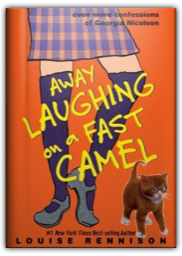
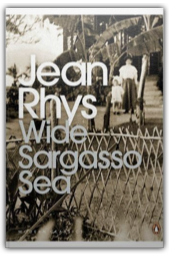
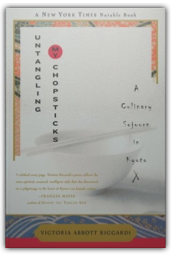
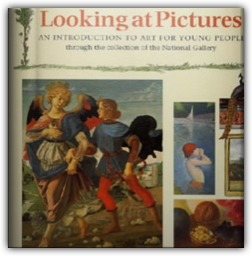
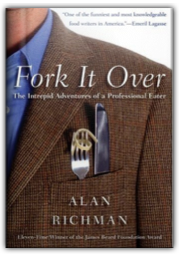
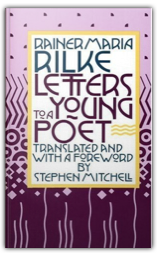
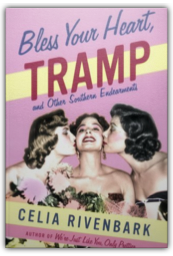
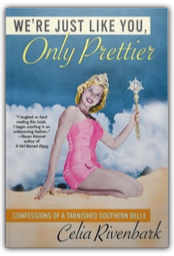
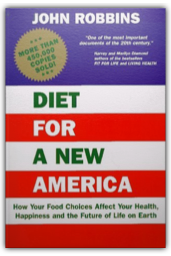
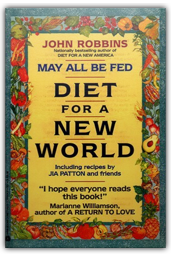
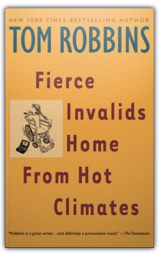
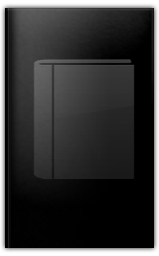


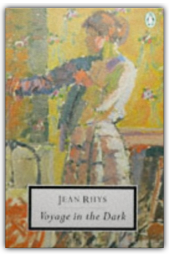
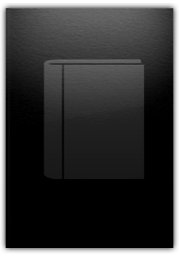
 Made with Delicious Library
Made with Delicious Library